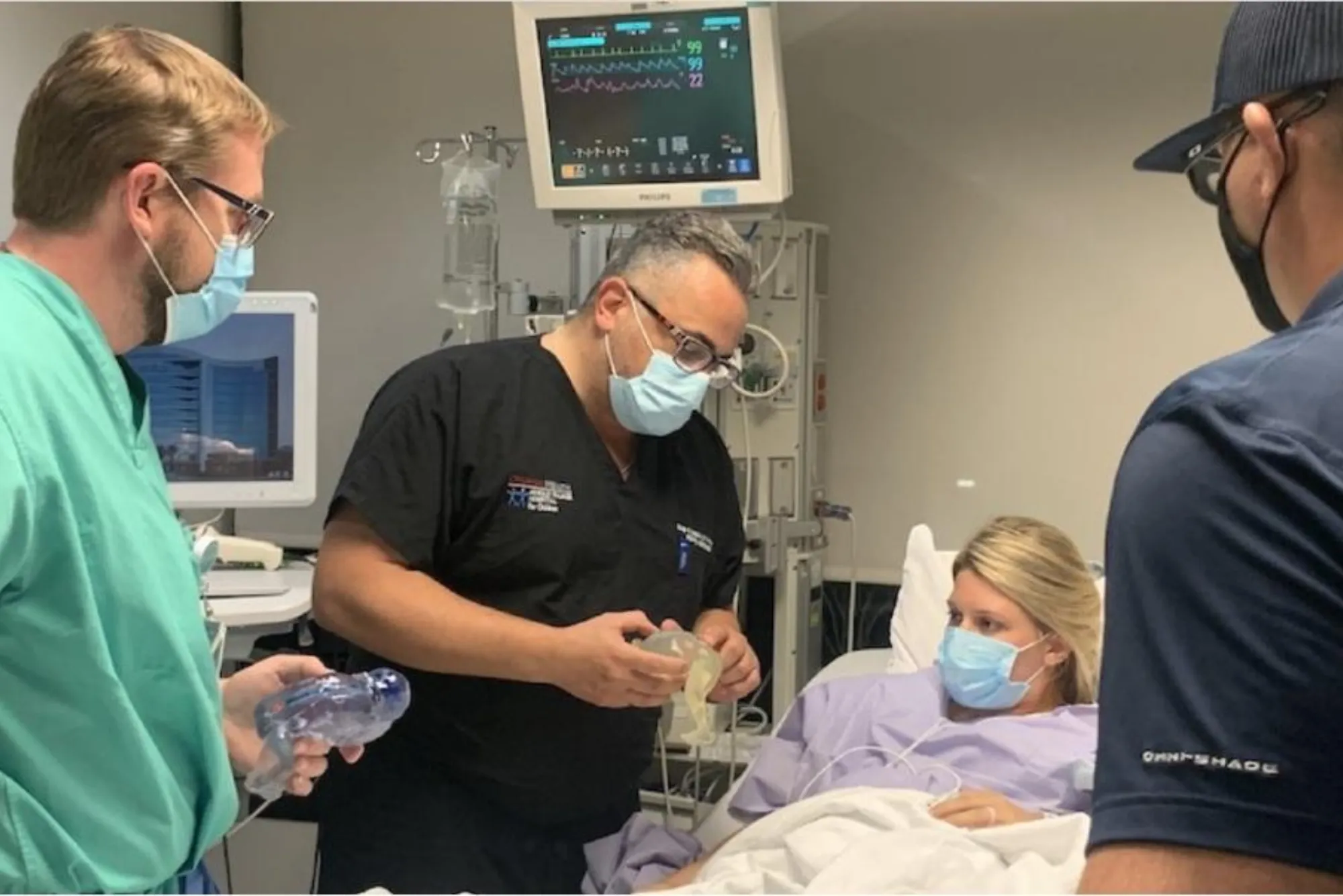Defamation cases involving prominent healthcare institutions like Orlando Health highlight the delicate balance between protecting reputations and ensuring free speech. Such cases often attract public attention due to their potential to influence healthcare operations, patient trust, and broader legal precedents. This article explores the nuances of defamation, its implications for healthcare providers, and how these legal battles shape the industry.
Understanding Defamation in Healthcare Context
Defamation involves false statements presented as facts that harm an individual’s or organization’s reputation. For healthcare institutions like Orlando Health, maintaining a strong public image is crucial due to the sensitive nature of their services. Defamation cases in healthcare can arise from various sources, including:

Patient Complaints: Negative reviews or public accusations that allege malpractice or misconduct.
Employee Disputes: Former or current employees making damaging claims about workplace practices.
Media Reports: Inaccurate or biased reporting that portrays the institution negatively.
Healthcare providers must tread carefully when addressing such claims, balancing transparency with legal protections.
Legal Framework for Defamation
To establish defamation, plaintiffs generally need to prove:
- False Statement: The information presented is demonstrably untrue.
- Publication: The statement was communicated to others, not just privately.
- Damage to Reputation: The statement caused quantifiable harm to the plaintiff’s reputation.
- Negligence or Malice: Depending on the plaintiff’s status, either negligence (for private individuals) or actual malice (for public figures and organizations) must be demonstrated.
In the context of defamation v Orlando Health, these elements form the backbone of any legal argument.
Public vs. Private Entities in Defamation Cases
Healthcare institutions often fall under the category of public entities due to their community involvement and the public interest in their operations. This classification means they must meet a higher burden of proof, demonstrating not just negligence but actual malice—that the defendant knew the statement was false or acted with reckless disregard for the truth.

Key Considerations in Healthcare Defamation Cases
Impact on Patient Trust
For organizations like Orlando Health, defamation cases are more than legal battles; they are about safeguarding patient trust. Negative publicity, whether true or false, can deter patients from seeking necessary care or undermine confidence in medical professionals.
Reputational Damage
Healthcare institutions rely heavily on their reputation to attract patients and top-tier professionals. Any defamation case, regardless of outcome, can leave lasting scars. Institutions must manage their public image proactively, addressing false claims while demonstrating commitment to ethical practices.
Case Study: Defamation v Orlando Health
Background and Allegations
Although the specifics of the defamation v Orlando Health case may vary, typical allegations could involve claims from disgruntled patients or employees. These cases often revolve around accusations of malpractice, administrative misconduct, or unethical behavior.
Legal Proceedings
In such cases, legal proceedings focus on:
- Evaluating Evidence: Demonstrating that the statements in question were false.
- Assessing Damages: Quantifying the impact on the institution’s reputation and operations.
- Defense Strategies: Institutions like Orlando Health may argue truthfulness, lack of malice, or that the statements constituted protected opinions rather than factual assertions.
Outcome and Implications
The outcome of defamation cases can set significant precedents for healthcare institutions. Successful defenses reinforce the importance of maintaining factual accuracy in public discourse. Conversely, losing a defamation case can lead to financial penalties, damaged reputations, and operational disruptions.
Strategies for Healthcare Institutions to Mitigate Defamation Risks
Proactive Communication
Healthcare providers should maintain open lines of communication with patients and employees, addressing grievances before they escalate. Transparency about medical errors or administrative challenges can prevent misinformation from spreading.
Legal Preparedness
Institutions must have robust legal frameworks in place to respond to defamation claims swiftly. This includes:
- Monitoring Public Discourse: Keeping track of online reviews, media reports, and social media mentions.
- Swift Legal Action: Addressing false claims quickly to prevent them from gaining traction.
- Employee Training: Educating staff about the legal and reputational implications of defamation.
Reputation Management

Effective reputation management goes beyond crisis response. Healthcare institutions should:
- Promote Positive Stories: Highlight successful treatments, community involvement, and patient testimonials.
- Engage with Media: Build relationships with journalists to ensure balanced reporting.
- Address Misconceptions: Correct false information promptly through official statements.
Broader Implications for the Healthcare Industry
The defamation v Orlando Health case underscores the broader challenges facing healthcare providers. As public institutions, they must navigate complex legal landscapes while maintaining public trust. Defamation cases can serve as wake-up calls, highlighting the need for stronger communication and legal strategies.
Legal Precedents
Each defamation case sets a precedent that can influence future legal battles. For healthcare institutions, these cases provide valuable lessons about the importance of evidence, the burden of proof, and the role of public perception in legal outcomes.
Public Perception
In an era of social media and online reviews, public perception can change rapidly. Healthcare institutions must stay ahead of the curve, managing their reputations proactively and addressing false claims decisively.
Conclusion
The defamation v Orlando Health case offers critical insights into the intersection of law, healthcare, and public perception. Defamation claims are more than legal disputes; they are battles for reputation, trust, and integrity. By understanding the legal framework, addressing grievances proactively, and managing public perception effectively, healthcare providers can navigate these challenges successfully.
Customer Reviews for Orlando Health
John D. – ★★★★★
“I had an amazing experience with Orlando Health. From the moment I walked in, the staff was friendly and professional. The doctors made sure to explain everything thoroughly and answered all my questions. I felt completely comfortable and well taken care of during my visit. Highly recommend!”
Maria L. – ★★★★☆
“The care I received at Orlando Health was top-notch. The nurses were kind, and the facilities were clean and well-maintained. However, I did experience some delays in waiting for my test results, which was a bit frustrating. Overall, I am very satisfied with the service.”
Kevin T. – ★★★★★
“I have been a patient at Orlando Health for years and have always had positive experiences. Whether it’s a routine check-up or a more serious procedure, I trust their team completely. They are professional, compassionate, and provide excellent care every time.”
Samantha R. – ★★★☆☆
“While the medical care at Orlando Health was good, I had some issues with their billing department. It took longer than expected to get the charges sorted out, and I had trouble reaching someone for clarification. I hope this is something they can improve upon.”
David H. – ★★★★★
“I recently had surgery at Orlando Health, and I couldn’t be happier with the outcome. The surgical team was highly skilled, and the recovery process was much smoother than I anticipated. I’m grateful for the care I received and would definitely trust them again.”
Emily S. – ★★★★☆
“Great experience overall. The hospital was clean, and the doctors were professional and knowledgeable. I had some difficulty with the scheduling process, but once everything was set, the care was exceptional. Definitely recommend Orlando Health for medical treatment.”
Liam M. – ★★★★★
“Orlando Health exceeded my expectations. I was nervous about my procedure, but the entire team was incredibly supportive and made me feel at ease. The follow-up care was also fantastic. I feel well taken care of and appreciated their attention to detail.”
Jessica P. – ★★★☆☆
“My visit was fine, but I felt the staff could have been a bit more attentive. I waited for quite a while to be seen, and while the staff was friendly, it would have been helpful to have more communication throughout the process.”
Michael W. – ★★★★★
“From the moment I called Orlando Health for an appointment, I was impressed by their customer service. The appointment was scheduled quickly, and the care I received was excellent. They really go above and beyond to make sure you’re comfortable.”
Rebecca B. – ★★★★☆
“I’ve had several visits to Orlando Health, and each time, I’ve had a good experience. The physicians are thorough and explain things clearly. One minor issue I had was a delay in receiving my prescriptions, but overall, I’m satisfied with their care.”








